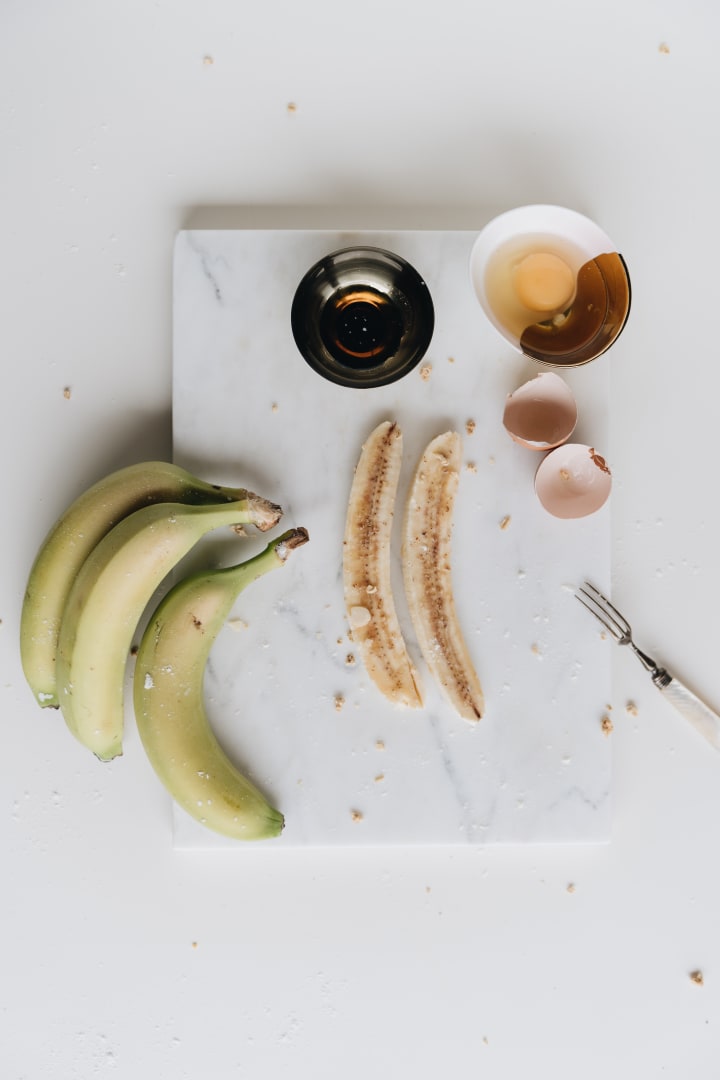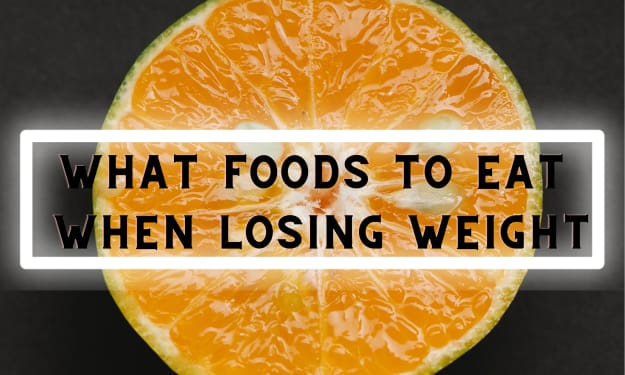Losing Weight: A Comprehensive Guide
Losing weight is a common goal for many people, but it can also be challenging and confusing. There are so many different diets, products, and programs that claim to help you lose weight fast and easy, but how do you know which ones are effective and safe? And how do you maintain your weight loss in the long term? In this article, we will provide you with some science-based tips and strategies to help you lose weight in a healthy and sustainable way. We will also cover some common questions and concerns that people have when trying to lose weight, such as: What is a healthy meal for losing weight? How can I calculate my macros for losing weight? Why am I not losing weight despite eating less and exercising more? Can I lose weight while pregnant or breastfeeding? Why am I losing weight without trying? Does losing weight increase size in certain areas? How can I lose weight after 40 or 50?

What is a healthy meal for losing weight?
A healthy meal for losing weight should include a balance of protein, healthy fat, complex carbohydrates, and vegetables. Protein helps you feel full and preserve muscle mass, which boosts your metabolism. Healthy fat provides essential fatty acids and helps you absorb fat-soluble vitamins. Complex carbohydrates provide energy and fiber, which slows down digestion and prevents blood sugar spikes. Vegetables provide vitamins, minerals, antioxidants, and phytochemicals that support your health and immunity.
Some examples of healthy meals for losing weight are:
Scrambled eggs with spinach and avocado on whole-wheat toast
Grilled chicken salad with mixed greens, cherry tomatoes, cucumber, feta cheese, and olive oil dressing
Salmon with roasted broccoli and quinoa
Turkey chili with beans, corn, carrots, onion, garlic, and spices
Vegetable stir-fry with tofu, brown rice, soy sauce, sesame oil, and Integers
How can I calculate my macros for losing weight?

Macros are short for macronutrients, which are the three main components of food: protein, fat, and carbohydrates. Each macro has a different role and function in the body, and each one provides a certain number of calories per gram. Protein and carbohydrates provide 4 calories per gram, while fat provides 9 calories per gram.
To calculate your macros for losing weight, you need to first determine your daily calorie needs based on your age, gender, height, weight, activity level, and weight loss goal. You can use an online calculator or a formula to estimate this number. Then, you need to decide what percentage of your calories you want to come from each macro. This can vary depending on your personal preference, health condition, dietary pattern, and type of exercise.
A general guideline is to aim for 20–35% of your calories from protein, 20–35% from fat, and 45–65% from carbohydrates. For example, if you need 1,500 calories per day to lose weight, and you choose a 30/30/40 ratio of protein/fat/carbs, your macros would be:
Protein: 30% of 1,500 = 450 calories / 4 = 112.5 grams
Fat: 30% of 1,500 = 450 calories / 9 = 50 grams
Carbohydrates: 40% of 1,500 = 600 calories / 4 = 150 grams
You can use an app or a website to track your macros and make sure you are meeting your targets.
Why am I not losing weight despite eating less and exercising more?
If you are not losing weight despite eating less and exercising more, there could be several possible reasons. Some of them are:
You are not eating enough: Eating too little can slow down your metabolism and cause your body to conserve energy and burn fewer calories. It can also increase your hunger hormones and make you crave more food. To avoid this, make sure you are eating at least 1,200 calories per day for women and 1,500 calories per day for men.
You are not eating the right foods: Eating less does not mean eating anything you want. If you are filling up on processed foods,
You are eating too much: Eating less than you burn is necessary for weight loss, but eating too much can also prevent you from losing weight. Even if you are eating healthy foods, portion size matters. To control your portions, use smaller plates, measure your food, and stop eating when you are 80% full.
You are not exercising enough: Exercise is important for weight loss because it helps you burn more calories, build muscle, and improve your metabolism. Aim for at least 150 minutes of moderate-intensity aerobic exercise and two or three strength-training sessions per week. Choose activities that you enjoy and vary your routine to avoid boredom and plateaus.
You have a medical condition: Some medical conditions can make weight loss harder or cause weight gain. These include hypothyroidism, polycystic ovary syndrome (PCOS), Cushing's syndrome, and depression. If you suspect you have a medical condition that affects your weight, talk to your doctor and get tested and treated accordingly.
You are stressed or sleep-deprived: Stress and lack of sleep can affect your hormones, appetite, and metabolism. When you are stressed, your body produces more cortisol, which can increase your hunger and cravings for unhealthy foods. When you are sleep-deprived, your body produces less leptin, which signals fullness, and more ghrelin, which stimulates hunger. To manage stress and sleep better, practice relaxation techniques, avoid caffeine and alcohol before bed, and stick to a regular sleep schedule.
Can I lose weight while pregnant?

Losing weight while pregnant is not recommended for most people, unless you have a high BMI (over 30) and your doctor advises you to do so. Losing weight while pregnant can put you at risk of having a baby who is too small or premature. It can also deprive you and your baby of essential nutrients that are needed for growth and development.
However, if you are overweight or obese and pregnant, you can still take steps to improve your health and prevent excessive weight gain during pregnancy. Some of these steps are:
Consult with your doctor: Talk to your doctor before you start an exercise program or change your diet while pregnant. Your doctor can help you determine how much weight you need to gain based on your pre-pregnancy BMI and how to do it safely.
Treat your pregnancy as an opportunity: Pregnancy can be a great time to start an exercise program and change your diet for the better. You can use this time to adopt healthier habits that will benefit you and your baby now and in the future.
Start slowly: Don't try to make drastic changes overnight. Start with small and realistic goals that you can achieve gradually. For example, aim to walk for 10 minutes a day and add 5 minutes every week until you reach 30 minutes a day.
Keep a journal: Keeping track of what you eat and how much you exercise can help you stay motivated and accountable. You can use an app or a notebook to record your food intake, calories, portions, macros, exercise duration, intensity, frequency, and mood.
Avoid empty calories: Empty calories are foods that provide little or no nutritional value but are high in calories. These include sugary drinks, sweets, cakes, cookies, chips, fried foods, alcohol, and processed meats. Instead of these foods, choose nutrient-dense foods that provide vitamins, minerals, antioxidants, fiber, protein, healthy fat, and complex carbohydrates
Ditch diet fads: Don't fall for diet fads that promise quick and easy weight loss during pregnancy. These diets are often restrictive,unbalanced, and potentially harmful for you and your baby.
Don't overdo workouts: Exercise is beneficial for you and your baby, but too much exercise can be dangerous. Overexertion can lead to dehydration, overheating, low blood sugar, and increased risk of injury. Listen to your body and don't push yourself beyond your limits. Avoid exercises that involve lying on your back, jumping, bouncing, or twisting.
Take a prenatal supplement: A prenatal supplement can help you meet your nutritional needs during pregnancy, especially if you have food aversions or nausea. Look for a supplement that contains folic acid, iron, calcium, vitamin D, and omega-3 fatty acids. However, don't rely on supplements alone. You still need to eat a balanced and varied diet to get all the nutrients you and your baby need.
Why am I losing weight without trying?
Losing weight without trying can be a sign of an underlying health condition that affects your metabolism, appetite, digestion, or absorption of nutrients. Some of the possible causes of unintentional weight loss are:
Hyperthyroidism: This is a condition where your thyroid gland produces too much thyroid hormone, which speeds up your metabolism and causes you to burn more calories. Other symptoms include fast heart rate, anxiety, heat intolerance, hand tremors, and light periods.
Diabetes: This is a condition where your blood sugar levels are too high due to insufficient insulin production or resistance. Insulin is a hormone that helps your cells use glucose for energy. Without enough insulin, your body can't use glucose properly and starts to break down fat and muscle for fuel. This leads to weight loss and increased urination. Other symptoms include increased thirst, hunger, fatigue, blurred vision, and slow healing.
Rheumatoid arthritis: This is an auto immune disease where your immune system attacks the lining of your joints, causing inflammation and pain. Chronic inflammation can increase your metabolic rate and reduce your appetite. Other symptoms include joint stiffness, swelling, redness, and warmth.
Depression: This is a mood disorder that affects how you feel, think, and behave. Depression can cause you to lose interest in food and activities that you used to enjoy. It can also affect your sleep quality and energy levels. Other symptoms include sadness, hopelessness, guilt, irritability, and suicidal thoughts.
Inflammatory bowel disease (IBD): This is a group of conditions that cause chronic inflammation in your digestive tract. The most common types are Crohn's disease and ulcerative colitis. IBD can interfere with your digestion and absorption of nutrients, leading to weight loss and diarrhea. Other symptoms include abdominal pain, cramping, bloating, blood in stool, fever, and fatigue.
If you are losing weight without trying and have any of the above symptoms or other unusual changes in your body or mood, see your doctor as soon as possible. Your doctor can diagnose the cause of your weight loss and prescribe the appropriate treatment.
Does losing weight increase size in certain areas?
Losing weight can affect the size of certain areas of your body depending on where you store fat and how much fat you lose. Some of the common areas that may change in size after weight loss are:
Breasts: Breasts are mostly made up of fat tissue, so losing weight can reduce their size significantly. However,the size of your breasts also depends on your genetics, hormones, age, and pregnancy history. Some people may notice a smaller change in their breast size after weight loss than others.
Penis: The penis is not made up of fat tissue, so losing weight does not increase its size. However, losing weight can reduce the amount of fat in your pubic area, which can make your penis appear longer. The amount of fat you lose in this area depends on your genetics and how much weight you lose overall. Some people may gain up to an inch of penis length for every 30 to 50 pounds they lose.
Face: The face is one of the first areas where you may notice weight loss. Losing weight can make your face look slimmer and more defined, especially around your cheeks, jawline, and chin. However, losing too much weight can also make your face look gaunt and aged, as you lose fat and collagen that support your skin elasticity.
Waist: The waist is another area where you may see a significant change in size after weight loss. Losing weight can reduce the amount of visceral fat that surrounds your organs in your abdominal cavity. This can lower your waist circumference and improve your health, as visceral fat is linked to increased risk of diabetes, heart disease, and stroke
How can I lose weight after 40?
Losing weight after 40 can be challenging due to slowed digestion and metabolism. One of the most effective ways to boost metabolism and calorie burning is to build or maintain muscle through weight-lifting and resistance training . Drinking water before meals can also help with fullness and weight loss. Other strategies and tools that can help with losing weight after 40 include:
Changing your diet: As you age, your nutritional needs may change. You may need more protein, calcium, vitamin D, and fiber to support your muscle, bone, and digestive health. You may also need fewer calories than before, as your metabolism slows down. To lose weight, you need to create a calorie deficit by eating less than you burn. Choose nutrient-dense foods that are low in fat, sugar, and salt, such as fruits, vegetables, whole grains, lean protein, nuts, seeds, and low-fat dairy .
Intermittent fasting: This is a dietary pattern that involves cycling between periods of eating and fasting. There are different types of intermittent fasting, such as the 16/8 method (eating within an 8-hour window and fasting for 16 hours), the 5:2 method (eating normally for 5 days and restricting calories to 500–600 on 2 days), or the alternate-day fasting (eating normally one day and fasting or eating very little the next day). Intermittent fasting can help you lose weight by reducing your calorie intake, improving your insulin sensitivity, and increasing your fat burning hormones .
Keeping a food diary: Writing down what you eat and drink can help you become more aware of your eating habits and patterns. It can also help you track your calories, portions, macros, and nutrients. You can use an app or a website to record your food intake and get feedback on how to improve your diet. A food diary can also help you identify any triggers or emotions that may lead you to overeat or make unhealthy choices .
Wearing a fitness tracker: A fitness tracker is a device that monitors your physical activity, heart rate, calories burned, steps taken, distance traveled, sleep quality, and more. You can wear it as a wristband, a watch, a clip-on, or a ring. A fitness tracker can help you set goals, track your progress, motivate you to move more, and give you feedback on how to improve your fitness level. Some fitness trackers can also sync with your smartphone or computer and provide you with personalized coaching and tips .
Managing stress: Stress can affect your weight in several ways. It can increase your cortisol levels, which can increase your appetite and cravings for unhealthy foods. It can also interfere with your sleep quality, which can affect your hormones and metabolism. It can also make you less motivated to exercise or eat well. To manage stress, practice relaxation techniques such as deep breathing, meditation, yoga, tai chi, or massage. You can also try hobbies that make you happy, such as reading,gardening, knitting, or painting. You can also seek support from your friends, family, or a therapist if you are feeling overwhelmed or depressed.
Sleeping well: Sleep is essential for your weight and overall health. Sleep can affect your appetite, metabolism, hormones, energy levels, and mood. Lack of sleep can increase your hunger and cravings for unhealthy foods, lower your metabolism, disrupt your hormones, reduce your physical activity, and impair your mood and cognitive function. To sleep better, aim for 7 to 9 hours of quality sleep per night. Avoid caffeine, alcohol, nicotine, and heavy meals before bed. Keep your bedroom dark, cool, quiet, and comfortable. Follow a regular sleep schedule and bedtime routine. If you have trouble falling asleep or staying asleep, talk to your doctor about possible causes and treatments.
Losing weight after 40 may require more effort and patience than before, but it is not impossible. By following these tips and consulting with your doctor, you can achieve your weight loss goals and improve your health and well-being.






Comments
There are no comments for this story
Be the first to respond and start the conversation.